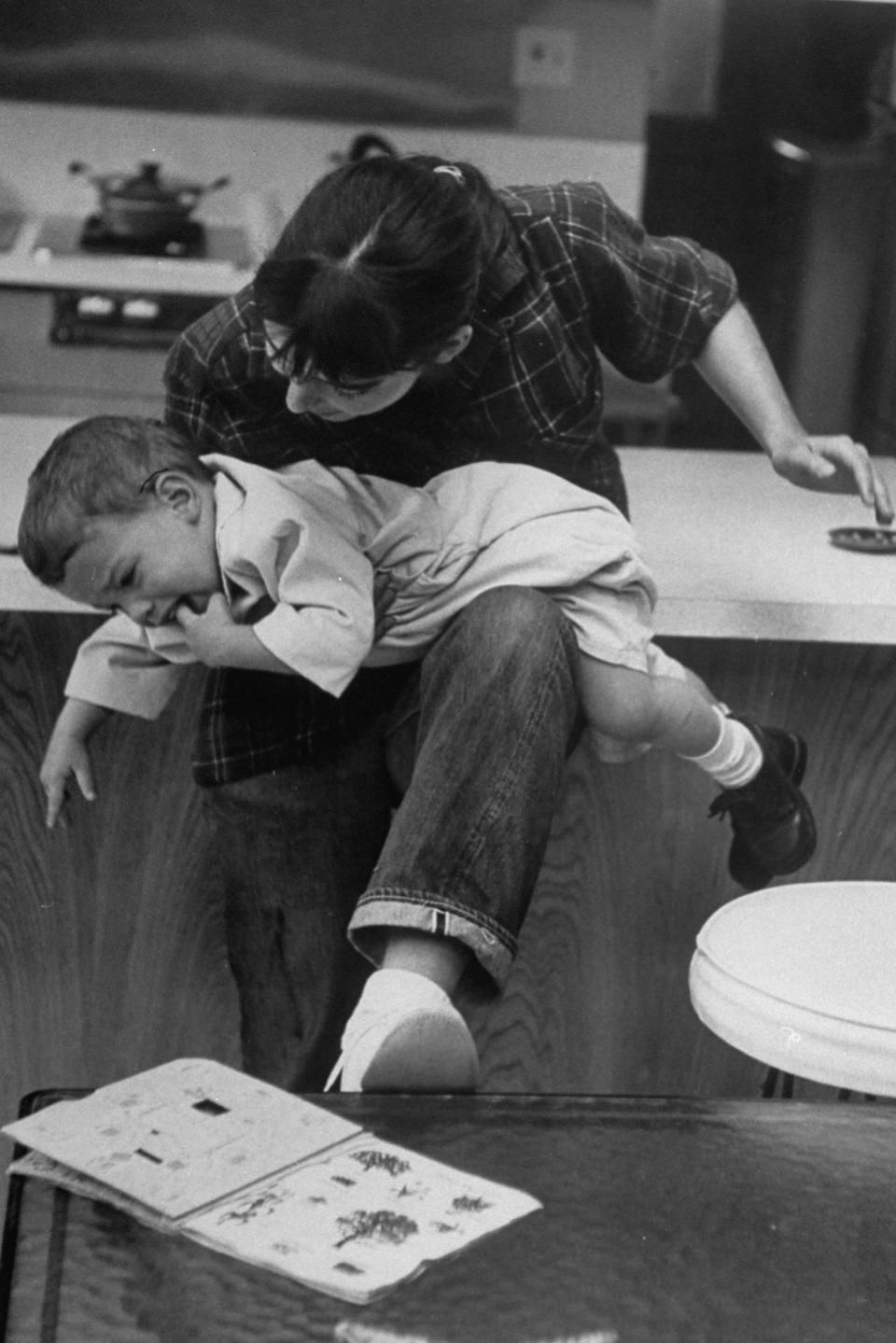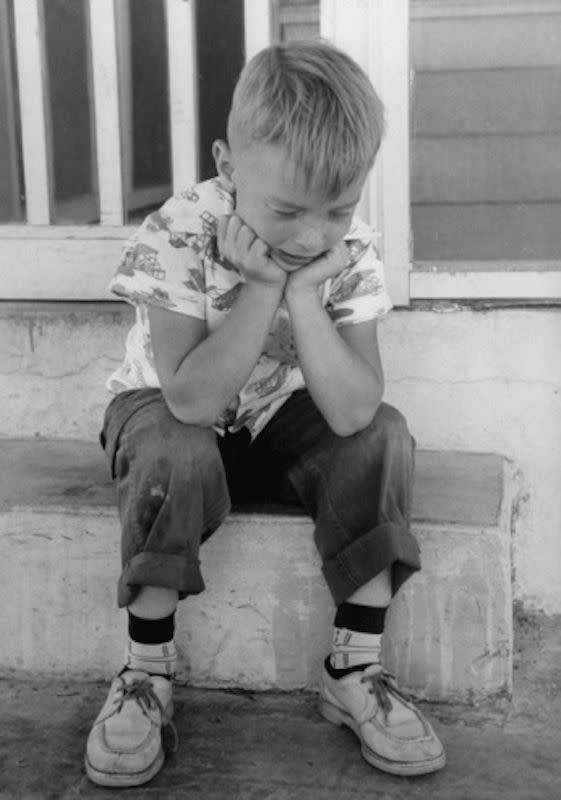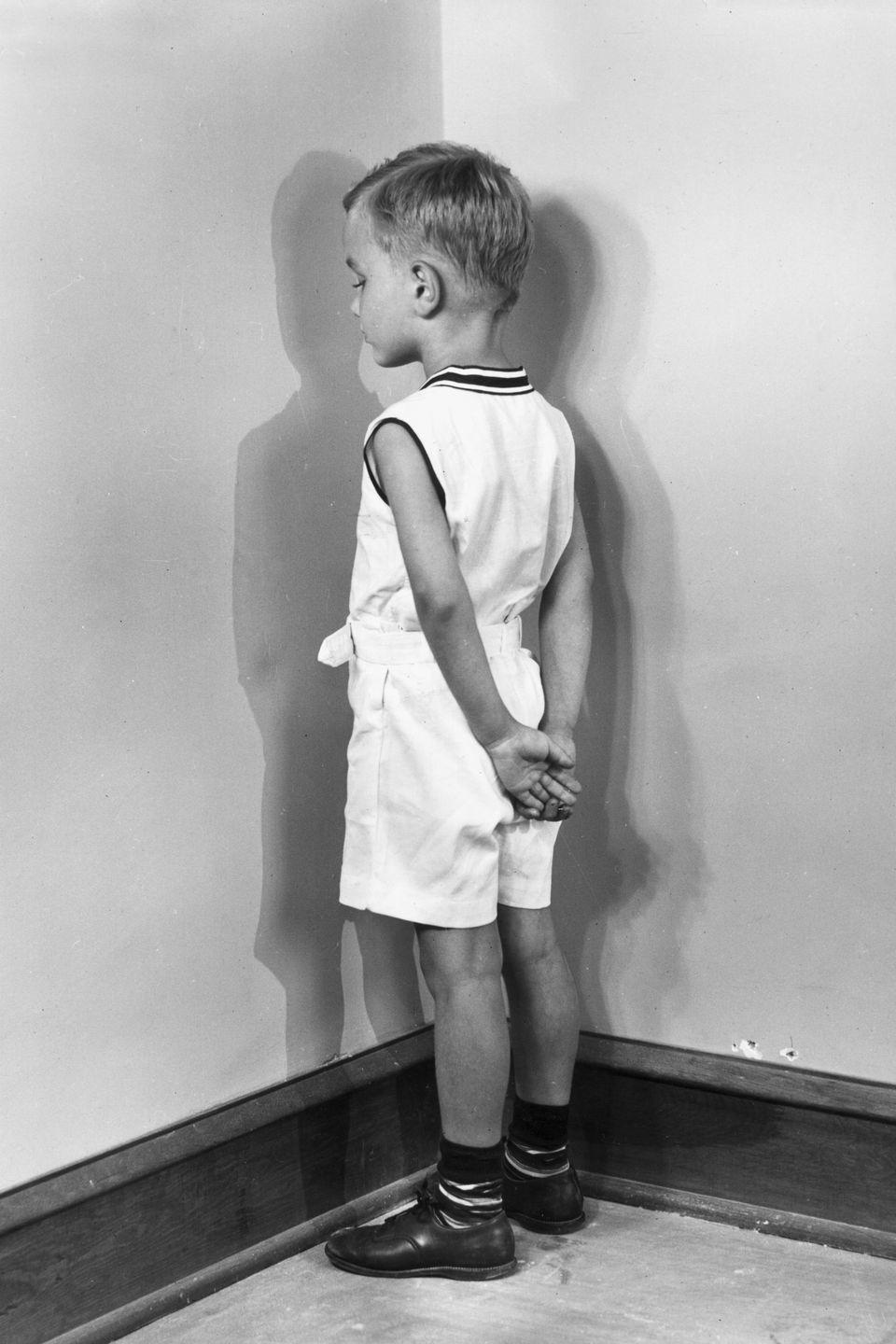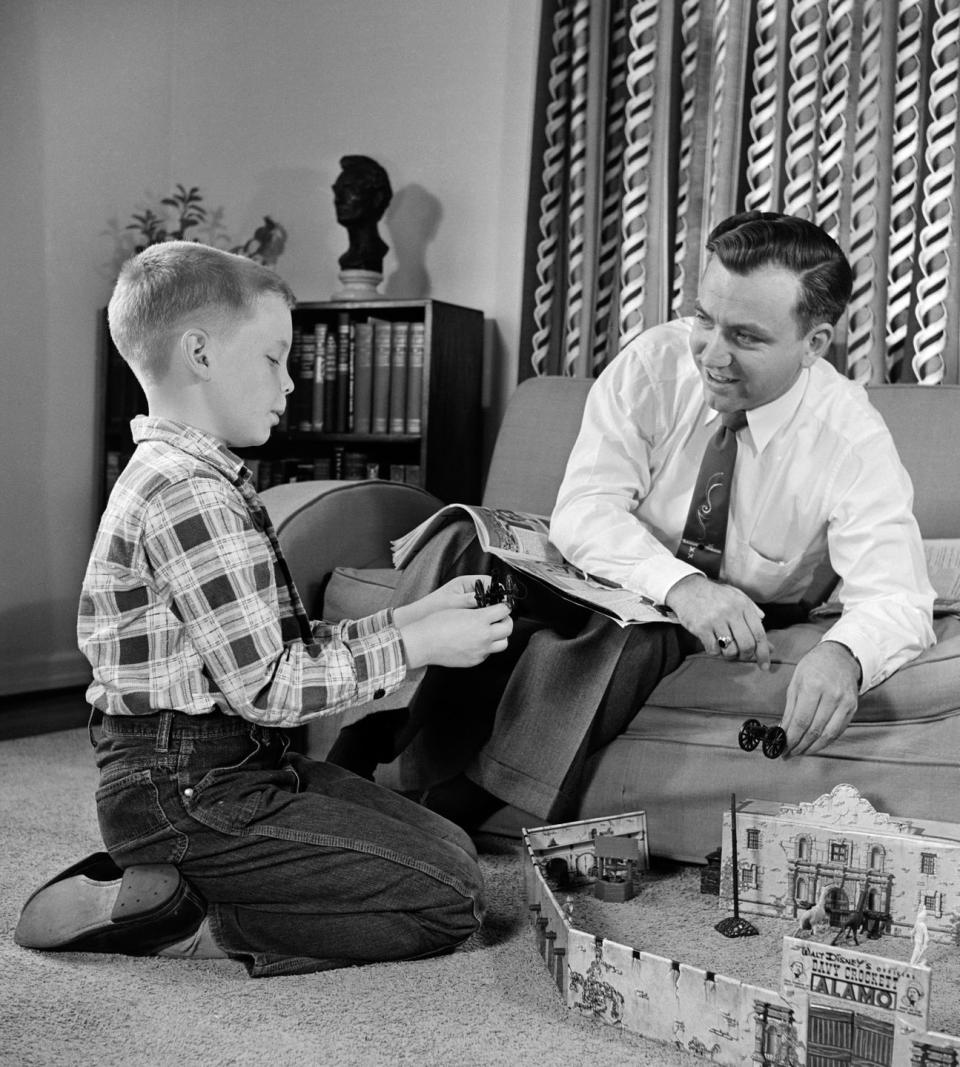6 Outdated Discipline Techniques You Should Never Use

6 Outdated Discipline Techniques You Should Never Use
Temper tantrums are never pretty, but don't bust out a "go to your room!" the next time your child has a meltdown. Discipline techniques that involve a physical or even emotional disconnection can actually cause major problems in the long run, says Vanessa Lapointe, Ph. D., author of Discipline Without Damage.
"We know scientifically that children actually need an emotional connection with their parents in order to be okay," she says. "The damaging effects of those kinds of discipline play out neurologically and then of course affect the child in their development and their sense of self."
Instead of "tricking" your child into doing what you want, Lapointe says the key to good behavior is building a solid relationship. When kids feel a strong attachment, they actually want to please their parents. They may not always deliver (because they're, you know, kids) but they'll come to terms with the rules.
"It's stepping into your role as adult, defining what the boundary is and holding that boundary with firmness but also compassion and kindness," she says. "It's as simple as saying, 'No, and I know you're upset ' or "No, and I understand your frustration.'"
With that in mind, here are six common strategies moms and dads are best to avoid:

1) Spanking
Besides the troubling ethics of it, the overwhelming majority of research on corporal punishment shows that it makes kids less likely to fall into line. "Spanking actually makes children worse behaved over the long term," states developmental psychologist Elizabeth Gershoff, Ph.D., Associate Professor of Human Development and Family Sciences at the University of Texas at Austin. "They actually get harder to parent."

2) Consequences
While Lapointe states that kids need structure, parents often pick punishments using an intimate understanding of what the child doesn't like, such as a particularly hated chore. By doing so, they're taking their relationship with their children and turning it against them, undermining that crucial emotional connection.

3) Removal of Privileges
Don't take away the iPad just yet. While some experts do stand by it, this technique still relies on parents manipulating their kids.

4) Time-Outs
According to Tina Payne Bryson, M.D. and Daniel J. Siegel, Ph.D., time-outs often don't work as intended. "When children are reflecting on their horrible luck to have such a mean, unfair mom or dad, they're missing out on a opportunity to build insight, empathy and problem-solving skills," they write in their book No-Drama Discipline. Giving kids an opportunity to make a better choice — e.g. "What could you do to make this right?" — is a better way to go.

5) Reward Systems
Giving kids treats may seem like a positive way to encourage good behavior, but don't let it fool you. "It could just as equally be called the not reward system," Lapointe says. "The seedy underbelly of getting the reward is not getting the reward, so we're simply in effect still punishing them."

6) Shaming
Your dad probably told you to "toughen up" on more than one occasion, but shutting down kids' feelings can have grave consequences. A 2010 study linked shaming with greater symptoms of anxiety. "We want our children to have a full connection between their brains and their hearts," Lapointe says. "When we tell them those no emotions have no value, we begin to divorce children from their sense of self."
Time-outs aren't your friend.